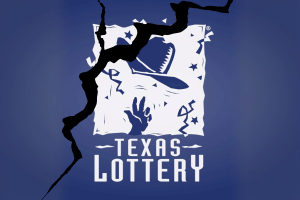Texas Lottery scandal: woman’s lawsuit exposes scheme that shut down $95M jackpot

On Wednesday, April 19, 2023, the Lotto Texas jackpot had climbed to $73 million. No one won that night, and actually, there hadn’t been a winner for the previous 91 drawings either. So, the money rolled over again. By the time the next drawing came around on Saturday, the jackpot had grown to $95 million.
At the time, there were almost 26 million possible number combinations in Lotto Texas. Compare that to Powerball, which has nearly 300 million. If someone, or a group of people, has the money and resources to cover every combination, they can basically guarantee a win. And if the jackpot is big enough, they could even make a profit.
That Saturday, the Texas Lottery Commission put out a press release calling it a “rare and very exciting opportunity for our players.” Gary Grief, the lottery’s executive director, said, “Players are turning out in droves to have the exclusive chance at winning the largest jackpot prize on the continent.”
But not everyone was celebrating. Dawn Nettles, who runs the Lotto Report website, had a different take. “I fear tonight will be a very sad night for Texas Lottery players,” she wrote.
“Now the Texas Lottery is probably going to be successful in screwing every player and retailer that resides in Texas,” the 74-year-old added.
Nettles, who lives in Garland, is known as the top watchdog when it comes to the Texas lottery. She’d noticed something wasn’t quite right. And sure enough, it eventually unraveled into what one state Senate leader would reportedly go on to call “the largest fraud in state history.”
What is the scandal with the Texas lottery?It turns out the Texas lottery rules had been broken. State law says tickets have to be sold in person, over the counter. But in this case, $25 million worth of tickets were sold through middlemen who were buying on behalf of out-of-state players. The transactions were handled using computers, iPads, and apps, which isn’t allowed under Texas law.
The winning ticket came from that pool of $25 million, all bought by an out-of-state syndicate. That meant Texas players hardly had a shot. What ended up happening was that the third-largest jackpot in Texas history was effectively rigged.
And with that, Dawn Nettles’ long-standing criticism of the Texas lottery system, which she’d been voicing for three decades, was finally proven right.
According to state law, lottery tickets have to be sold inside retail stores where other goods are sold. But at one location in Colleyville, it turned out the setup was just a front.
At the time, nobody could have predicted that this whole lottery scandal would become one of the biggest issues in the 2025 Texas legislative session. Lt. Gov. Dan Patrick brought attention to it by stopping by a lottery store in Austin and filming a video.
Then Senator Paul Bettencourt, a Republican from Houston, accused the lottery of enabling money laundering. After that, the Senate passed a bill to reform the lottery, and the House followed suit.
A big part of how the story gained momentum was thanks to Houston Chronicle reporter Eric Dexheimer. He revealed that the likely winners were tied to a London betting house and a syndicate based out of Malta.
Is Texas going to do away with the lottery amid the scandal?This week, the Texas Legislature officially shut down the Texas Lottery Commission. All of its responsibilities, including overseeing the state lottery and charitable bingo, are being handed over to the Texas Department of Licensing and Regulation, or TDLR. The move comes directly from recent findings by the Sunset Commission, along with new legislation passed during the latest session.
“The agency’s governing body is not adequately engaged and lacks mechanisms to ensure the long-term success of the state lottery and charitable bingo.” – The Sunset Commission
Governor Greg Abbott and lawmakers moved ahead with Senate Bill 3070. That bill completely dissolves the Lottery Commission and shifts its main duties to TDLR.
The official report summed it up like this: “The Legislature did not pass the Texas Lottery Commission’s (TLC) Sunset bill. Instead, the Legislature abolished the agency and transferred the functions of the state lottery and bingo programs to the Texas Department of Licensing and Regulation (TDLR) through SB 3070.”
SB 3070 keeps many of the reforms that were originally meant to fix the Lottery Commission. But since the agency no longer exists, any internal management fixes suggested by the Sunset Commission don’t apply anymore.
The new law also puts strict limits on how lottery tickets can be sold. From now on, a person can only buy up to 100 tickets in a single transaction. Selling tickets through the internet, over the phone, or using apps is now completely banned. Violating these rules could result in a Class A misdemeanor, which carries up to a year in jail and a fine of up to $4,000.
The bill makes it clear. You can’t order a ticket online, and no one else can place an order or buy a ticket for you. Tickets can only be bought in person at physical retail locations, and only during regular business hours.
Retailers also have to verify the buyer’s age using methods approved by the state. Before this change, the Texas Lottery Commission had already banned lottery courier services, which are third-party companies that buy and deliver tickets.
Lieutenant Governor Dan Patrick didn’t hold back when the Lottery Commission previously tried to put out a positive spin. “I’ve never read so much garbage from a state agency press release in my 18 years in office,” he said.
I've never read so much garbage from a state agency press release in my 18 years in office. After years of claiming they had no authority to regulate lottery couriers, today the Texas Lottery Commission suddenly exercised the ultimate regulatory authority by banning all lottery… https://t.co/ljn456sMBR
— Office of the Lieutenant Governor Dan Patrick (@LtGovTX) February 24, 2025
At this point, the state’s lottery system is still in disarray. The last two executive directors, Grief and Ryan Mindell, both resigned under a cloud. The new law even opens the door for the entire Texas lottery to be shut down by 2029.
This whole lottery scandal also stalled momentum around bringing casino gambling to Texas. The transition from the old Lottery Commission to TDLR is supposed to be wrapped up by September 1, 2025.
What is the Texas Lotto lawsuit? Ryan Mindell jumped ship amid the scandal. Credit: LinkedIn / Texas Lottery Commission
Ryan Mindell jumped ship amid the scandal. Credit: LinkedIn / Texas Lottery Commission
Even though the Texas Lottery Commission has been shut down, there’s still a lawsuit hanging over its head. At the end of May, a Texas woman accused the commission of withholding an $83.5 million jackpot, three months after her ticket matched the winning numbers.
The lawsuit was filed on May 19 by a woman from Montgomery County, identified in court documents as Jane Doe. According to the suit, she bought a ticket for the “Lotto Texas” game on the night of February 17 using a courier service called Jackpocket.
Jackpocket is one of several third-party services that lets Texans buy lottery tickets online. They’re not regulated in Texas, but they operate by taking ticket orders from customers online or by phone, then purchasing the tickets through authorized lottery retailers. They also charge service fees for handling the whole process.
Jane Doe claims her winning ticket was purchased on her behalf by Jackpocket through a retailer called Winners Corner in Austin. That same night, the numbers on her ticket matched the winning combination for the $83.5 million jackpot, according to her lawsuit.
But just a week after that drawing, the Texas Lottery suddenly announced it was banning all unregulated lottery courier services “effective immediately.”
Now the big question is who’s responsible for handling the lawsuit, since the Lottery Commission technically doesn’t exist anymore? That’s still unclear, and the legal mess is far from over.
Can residents still play?Texans hoping to win big on the state lottery are going to find it a bit harder to play now, with fewer places available to buy tickets.
That said, people in Texas can still play the lottery, well, at least until September 1.
Under a new law signed on June 20, control of the state lottery is being handed over to the Texas Commission of Licensing and Regulation.
The law also makes it official that using courier services to buy lottery tickets is now banned. That means no more purchasing or selling tickets through websites or mobile apps.
If you want to play the lottery in Texas, you’ll have to go in person to a licensed retailer and buy your ticket the old-fashioned way.
ReadWrite has reached out to the Texas Lottery Commission for comment.
Featured image: Texas Lottery Commission / Canva
The post Texas Lottery scandal: woman’s lawsuit exposes scheme that shut down $95M jackpot appeared first on ReadWrite.
